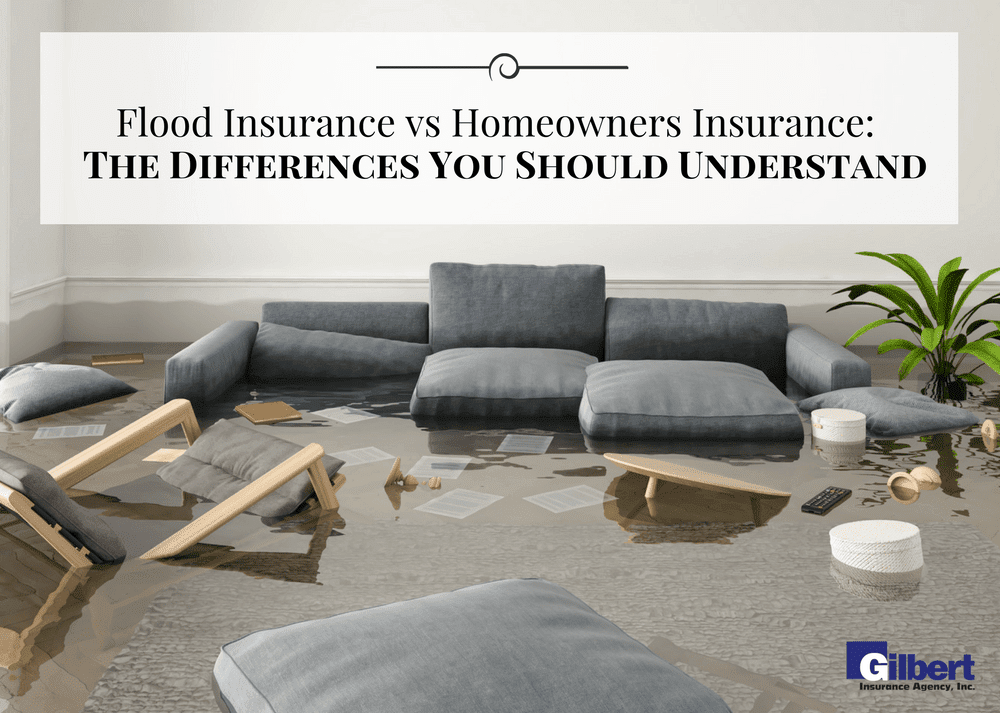
Flood Insurance vs Homeowners Insurance: The Differences You Should Understand
Mother Nature can be unpredictable. For five days in August, Texas and Louisiana saw an unprecedented 50 inches of rain in parts of the state. Less than a week later Florida was bracing for the largest ever recorded hurricane, Irma. On the heels of Irma came Jose and then Maria, whose force left Puerto Rico without power and completely devastated. The month of September 2017 may be the worst hurricane month ever recorded.
These devastating hurricanes have caused significant damage with high winds and rising flood waters. Not only are floods the nation’s most common natural disaster — they’re also the most costly. As one of the North Shore’s top insurance experts, we felt it was the perfect time to remind our clients and the residents North of Boston that now is an excellent opportunity to review your homeowners insurance and look into flood insurance options if you live along the coast, or near a stream, river or marsh. We’re sure once you begin your research that you will have questions. And the insurance team here at Gilbert Insurance, has answers.
When it comes to homeowner’s insurance policy, not all water damages are equal. In many cases, sudden or accidental water damages may be covered, depending on the specifics of your policy. For example, damages caused by the weight of snow or ice, freezing of plumbing or pipes, or overflow, such as your washing machine overflowing, may be covered. Conversely, gradual damages, which occur slowly over time and are often related to a lack of proper maintenance, are often not covered under a standard homeowners policy. Imagine this, your upstairs bathroom has a leaky pipe. Over time, you notice a water spot on the ceiling below which eventually deteriorates into a hole, leading to water damage on your first floor. This is an example of gradual damage, because it happened over a period of time, and could have been prevented if addressed sooner.
Flood damages, however, will not be covered by your homeowner’s policy. To help you understand the difference, here’s how insurance companies define flooding: an overflow of water from any body of water such as the ocean, a river or a stream, or even an inundation of water from rain which covers two or more acres of land or two or more adjacent properties. Coverage for flood damage must be purchased separately in addition to your homeowner’s coverage.
Flood insurance can be purchased from the National Flood Insurance Plan (NFIP) or from a private insurance carrier. There are two types of coverage offered under a Flood Insurance Policy.
Building Property Coverage In Your Flood Insurance Policy
Building Property Coverage can be purchased to cover the cost of rebuilding your home. Under the NFIP you can purchase up to $250,000 of coverage. If the cost to rebuild your home is valued at or above this limit, you should purchase up to the limit. If the cost to rebuild your home is less than the limit, you can purchase less coverage. Building Coverage provides coverage for the following properties with basements, other coverage may be available for Flood damage above the first living level:
- The structure of the building covered under the policy and its foundation.
- Any electrical and plumbing systems.
- Central air-conditioning equipment, furnaces, and water heaters.
- A detached garage is covered up to 10% of the building limit
Personal Property/ Contents Coverage In Your Flood Insurance Policy
Personal Property or Contents Coverage covers the actual cash dollar amount for your personal property. For this coverage, you should first conduct a home inventory to determine the value of your belongings. This will help you determine how much coverage you need. The limit for this coverage is $100,000 and includes the following items for properties with basements, other coverage may be available for Flood damage above the first living level:
- Portable and window air conditioners.
- Washing machines and dryers.
- Freezers, and the food inside them.
For homeowners, we recommend purchasing both building property coverage and personal property coverage. Renters would only need to purchase personal property coverage. For condominium owners, you should read your association bylaws to understand what is covered by the association and what is not, then purchase the appropriate coverage.
We hope that you never have to live through the devastation caused by the most recent weather events. However, if a major storm hits us here in Massachusetts, you can rest assured that the experienced Gilbert Insurance team will be here for you. We pride ourselves on getting to know our clients and want to truly understand your risk, of flooding and any other threats to your home before we write your policy. So if the time comes when you need to file a claim, you can feel confident that you have the proper coverage.
We know navigating the waters of flood insurance coverage can be murky. If you have questions on a new or existing policy, feel free to give us a call at 781-942-2225 or
